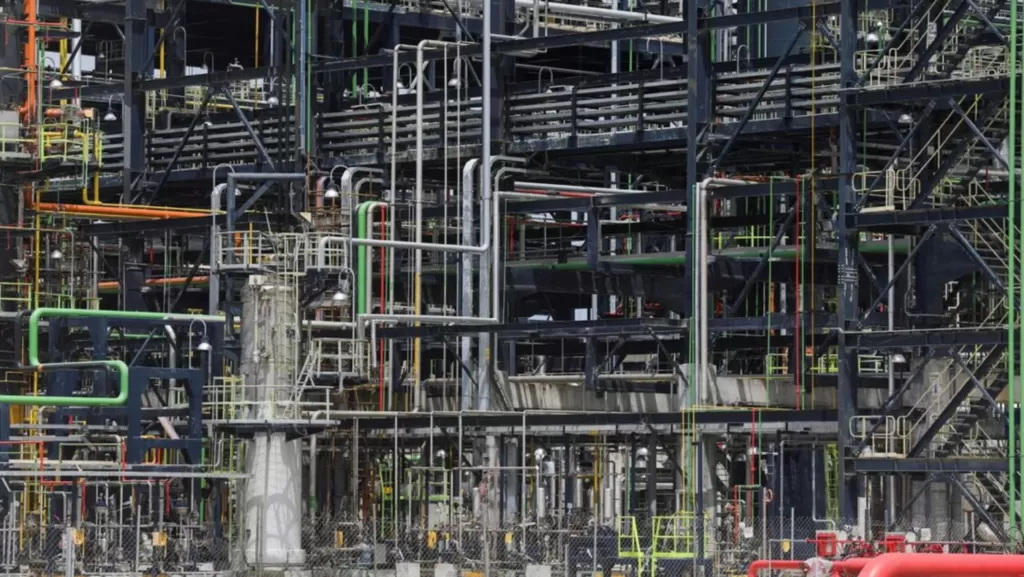After Years Of Shutdown, Port Harcourt Refinery Recommences Operation

The Port Harcourt Refinery, located in Rivers State, Nigeria, has a long-standing history as one of the country’s major oil refining facilities. Established in 1965, it was commissioned as the first refinery in Nigeria and played a pivotal role in the nation’s economy. The refinery was designed with an initial capacity of 38,000 barrels per day (bpd), focusing on processing crude oil into various petroleum products.
Over the years, the Port Harcourt Refinery has faced numerous challenges that led to its frequent shutdowns. These challenges include aging infrastructure, inadequate maintenance, and insufficient investments. As a result, its operational efficiency declined significantly, leading to inconsistent production and fuel shortages across the country.
Despite these setbacks, various attempts were made by successive Nigerian governments to revitalize and upgrade the refinery. However, due to financial constraints and bureaucratic hurdles, these efforts were largely unsuccessful until recently.
After years of shutdown and underutilization since 2019 due to extensive rehabilitation work required for its refurbishment and modernization process, there is hope for a new chapter in the refinery’s history. With completion of repairs and upgrades underway through strategic partnerships with international companies experienced in refinery operations, the Port Harcourt Refinery is set to recommence operations with expectations of improved efficiency and increased production capacity.
Reasons For The Prolonged Shutdown Of The Port Harcourt Refinery
The Port Harcourt Refinery, located in Nigeria, has recently recommenced operations after years of being shut down. The prolonged shutdown of the refinery can be attributed to several key reasons. Firstly, inadequate maintenance and outdated infrastructure have been major contributors to the refinery’s prolonged closure. Over the years, a lack of investment in modernizing equipment and facilities has resulted in frequent breakdowns and operational inefficiencies.
Additionally, corruption and mismanagement within the Nigerian oil sector have hampered efforts to revive the refinery. The misappropriation of funds meant for maintenance and upgrades has further hindered its ability to function optimally. This has led to a vicious cycle where insufficient funds are allocated for repairs, causing further deterioration of equipment and infrastructure.
Furthermore, security challenges in the region have also played a significant role in the shutdown. The Port Harcourt Refinery is located in an area prone to militant attacks and pipeline vandalism, which not only disrupts operations but also poses risks to personnel safety.
In conclusion, a combination of inadequate maintenance, corruption within the oil sector, and security challenges have contributed to the prolonged shutdown of the Port Harcourt Refinery. Addressing these issues will be crucial in ensuring its sustained operation moving forward.
Successful Resumption Of Operations At The Port Harcourt Refinery
After years of being non-operational, the Port Harcourt Refinery has successfully recommenced its operations, marking a significant milestone for Nigeria’s oil industry. The resumption comes as a result of extensive renovations and upgrades carried out by the Nigerian National Petroleum Corporation (NNPC) in collaboration with international partners. With a refining capacity of 210,000 barrels per day, the revival of the Port Harcourt Refinery is expected to have far-reaching positive impacts on Nigeria’s economy and energy sector.
The refinery’s recommencement will not only reduce the country’s reliance on imported refined petroleum products but also contribute to employment generation and foreign exchange savings. The successful restart of operations at the Port Harcourt Refinery demonstrates Nigeria’s commitment to revitalizing its domestic refining capabilities. This achievement is a testament to the collective efforts made by stakeholders in bridging infrastructure gaps and addressing operational challenges that plagued the refinery for years.
The revamped facility will now operate at full capacity, utilizing state-of-the-art technology and adhering to stringent environmental standards. Furthermore, it will provide an opportunity for skill development among local workers through training programs offered by NNPC and its partners.







